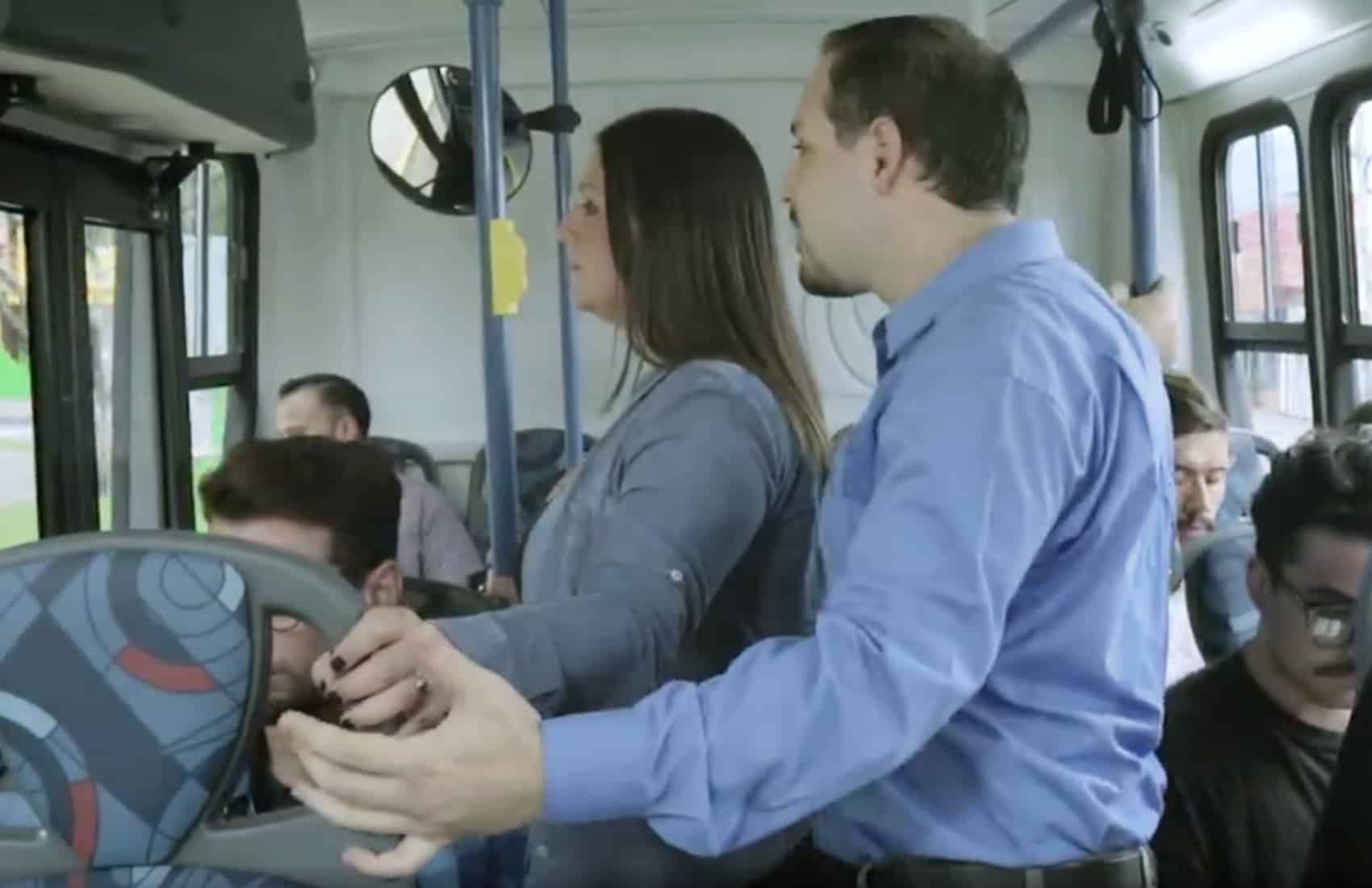The government recently launched a campaign aimed at combatting vulgar catcalling and groping in public places. The campaign, dubbed “Actuemos en contra del acoso sexual” (Let’s act against sexual harassment), consists of messages on social media, buses and billboards.
One spot that is being displayed on 450 screens inside buses in the Greater Metropolitan Area shows a man on a bus who gets up from his seat to whisper something in a woman’s ear at close range. The man then goes on to make inappropriate physical gestures towards two other women on the bus.
Six out of 10 women in Costa Rica say they’ve been victims of sexual harassment in public spaces here, according to a survey by the University of Costa Rica (UCR) released in January.
https://www.facebook.com/MOPTcostarica/videos/vb.141524109195178/1398762073471369/?type=3&theater
The campaign is a joint effort of the National Women’s Institute (INAMU), the Public Works and Transport Ministry (MOPT), the Ombudsman’s Office, feminist collective Peras del Olmo and several public bus companies.
Ana Hidalgo, who coordinates INAMU’s program on gender-based violence, said the campaign seeks to educate people about sexual harassment in public spaces and to motivate citizens to act against it.
In the first stage of the campaign, messages are specifically targeting sexual harassment on public transportation. Participant agencies and bus companies will promote the messages for the rest of this year.
Messages also aim at informing the population about the agencies where victims can file a complaint and about organizations that provide support to victims, Hidalgo said.
In a second stage of the campaign messages also will be displayed on billboards and on the outside of buses. The spot will also be shown at movie theaters during previews.
INAMU President Alejandra Mora, who’s also the government minister of women’s issues, said officials are working to implement further actions to promote safer public spaces for women.
“We will also offer training for bus drivers so they know how to respond if a passenger is being harassed,” Mora said.
She said sexual harassment harms the physical, psychological and sexual integrity of women who are constant victims of catcalling, vulgar gestures, groping and sexual abuse.
Peras del Olmo sociologist Ariel Calderón said it is time citizens assume a modern and civilized attitude of respect towards all people. “We should stop thinking that sexual street harassment consists only of catcalling,” he said.
INAMU officials hope more companies join the campaign and begin reposting the messages on their social media profiles.
MOPT minister Carlos Villalta also made a public call to bus companies all over the country to collaborate with the campaign and play the spot on their vehicles’ screens.
Only a misdemeanor
Among the most common types of sexual harassment identified by the UCR’s survey are catcalling, wolf-whistling, vulgar gestures, leering, groping, purposefully rubbing up against someone, indecent exposure and preventing a person from passing in a public space.
The investigation also found that the Misdemeanors Court and various public agencies register complaints of sexual harassment on streets against women of all ages, including children and the elderly.
Under Costa Rica’s Criminal Code, none of the behaviors considered street harassment are considered crimes.
Article 392 of the country’s Penal Code considers sexual harassment a minor offense described as a “violation against decency.” Filing a complaint requires the offender to be fully identified by police.
If the suspect does not carry an ID, cops will take him (or her) to the nearest precinct for a full identification and then release the suspect.
The complaint then goes to a Misdemeanors Court where the victim has to provide evidence or a witness. If the judge finds the suspect guilty, the offender may have to pay a monetary fine ranging from $120 to $750.
Ombudswoman Montserrat Solano Carboni said Thursday that she recommends that victims immediately Call 9-1-1 so that police officers can identify the harasser in order to take the complaint to court.
The Ombudsman’s Office also provides legal and psychological assistance to victims that can be requested by phone at: 4000-8693 and 4000-8694, Solano said.
Civil action
Recent cases of street harassment that made headlines here prompted public demonstrations asking for stricter sanctions for these behaviors.
Women’s rights group Colectivo Acción Respeto Costa Rica and other organizations launched an effort last October to draft and submit a bill that would criminalize catcalls and other forms of sexual harassment on Costa Rica’s streets.
The groups are asking for a more expeditious process for filing a complaint. They also want the court to issue protective measures for victims.
Their proposal also demands stricter sanctions for recidivist offenders and for those found guilty of harassing minors, disabled or elderly people.
Under the proposed law, the Judicial Branch would create a registry of complaints that facilitates monitoring of sexual harassment offenders.
Proponents also want a protocol developed for dealing with sexual harassment victims, including training for police officers.
The proposal, however, is stalled at the Legislative Assembly and was not included in the agenda of priority bills to be discussed during the current legislative session.






